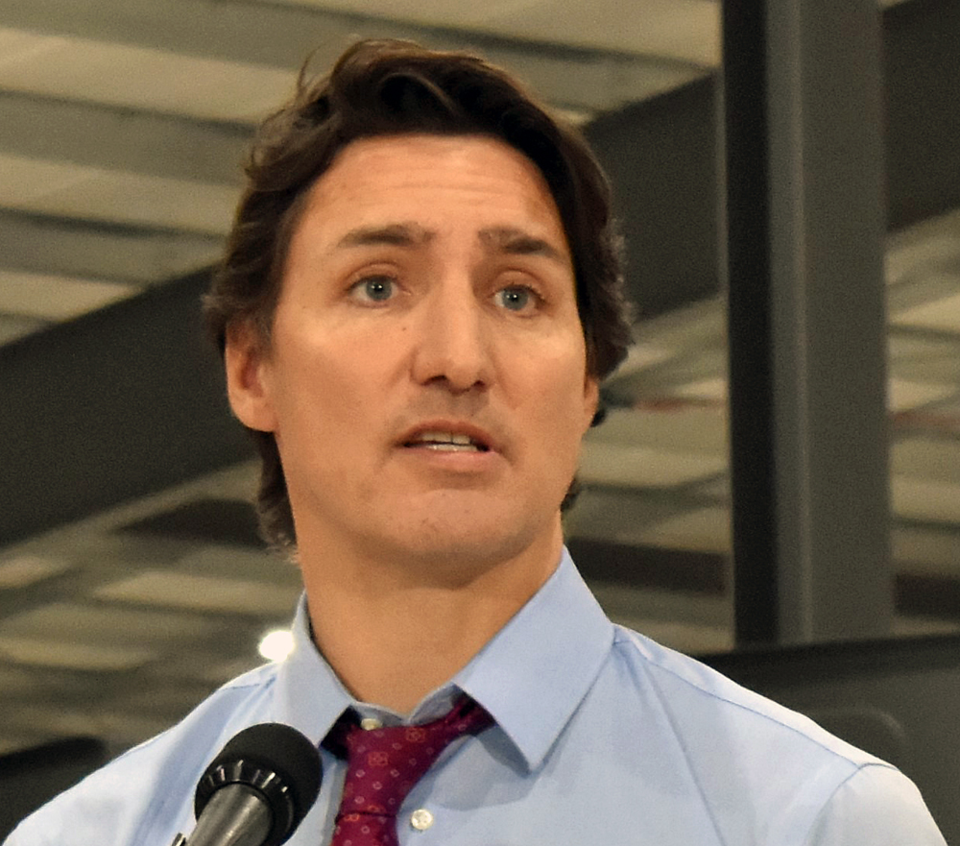Justin Trudeau's decision to step down as Canada's prime minister was as predictable as it was overdue.
Speculation about his future was ramping up ever since Chrystia Freeland offered a not-so-diplomatic rebuke of Trudeau's leadership in the wake of her resignation as finance minister last month.
Members of the Ontario and Atlantic Liberal caucuses have since called for Trudeau to step down, another indication of Trudeau's sliding support within the ranks of his own party. Combined with his paltry approval rating and support for the party in national polls, it was clear that Trudeau's days as prime minister should have been numbered.
Many are undoubtedly celebrating Trudeau's decision to go, but his departure won't take effect until a new Liberal leader (and consequently our next prime minister) is selected, so we will have to wait a little while longer for Trudeau to officially exit. Parliament has been prorogued until March 24; hopefully, his replacement will be in place by then.
Several names have been bandied about as potential replacements, including Freeland, who was miscast as finance minister and was far more effective in the foreign affairs post. Economist Mark Carney, who is the former governor of the Bank of Canada and the Bank of England, is another individual long viewed as a potential future prime minister. Freeland's replacement in finance, Dominic LeBlanc, is touted as a potential candidate.
And while all three would be eager to take a run at the prime minister's job, you have to remember that Trudeau's government has been in power for more than nine years – an eternity in this day and age. A change at the top will unquestionably boost their sagging popularity, but it can only do so much. And if Freeland or LeBlanc – or another current or former member of the Liberal caucus – moves into the leader's chair, then that person will be associated with the present government.
We'll see how Trudeau's departure impacts the tactics and the strategies of the other parties. With Parliament prorogued, an election almost certainly won't be happening until the middle of the spring, at the earliest. It's most likely the next election will be on the scheduled date at the end of October.
Conservative Party Leader Pierre Poilievre might have to tone down some of his rhetoric once Trudeau's replacement is in place, but the next election will still be his to lose.
Trudeau's announcement came two weeks before Donald Trump is to be sworn in for his second term as president of the U.S. Trump's been making all sorts of noise about tariffs on Canadian goods. Definitely not a good time for the PM to step down and prorogue Parliament.
(We'll see whether Trump is still making comments about Canada being the 51st state once Trudeau's replacement is known).
When Trudeau was elected in 2015, he was hailed as a great engager – an outgoing and idealistic politician whose approach was to be very different than that of his predecessor, Stephen Harper. Trudeau said it was time to do politics differently. He was at his best when he was able to be out conversing with people.
But there's more to being an effective prime minister than talking with and listening to the electorate. From a policy and a fiscal perspective, he struggled. Yes, he was forced to steer the county through the COVID-19 pandemic – a situation that didn't have a detailed playbook or an opportunity to plan well in advance. But the country has continued to be mired in deficits and it's going to take a long time to emerge from the fiscal mismanagement.
We also saw how the feds interfered in provincial jurisdiction on such matters as the carbon tax.
History probably isn't going to be too kind on the Trudeau years. He's certainly not going to be viewed as favourably as his father, Pierre, who many regard as one of Canada's greatest prime ministers, or some of the others from his party who helped the party become a dynasty.
We'll see how much of a legacy Justin Trudeau's replacement as Liberal leader and prime minister gets to create.



